For people involved with the historical process, we know just how important it is to gather information and organize it for the purposes of education, and argumentation. What is interesting however, is how we miss the key features of this information organization which make the practice itself so fulfilling and easier to conduct.
In this piece, I’m going to outline the most interesting and essential duality in the process of historical transcription that I have concluded after my first few weeks of transcribing interviews for the Multicultural History Society of Ontario (MHSO).
While tedious, the transcribing process is pretty relaxing.
There are no words that can truly express in the purest eloquence just how agonizingly time consuming conducting a historical transcription is.
My first two transcriptions were both approximately one hour of audio respectively, typed out into some odd forty pages and almost twenty thousand words collectively. Before I got the hang of transcribing, it took me a full nine to five work day to transcribe my first half our of audio. By the time I got the hang of transcribing, I realized in concurring conversations with my on sight supervisor that the average transcribing time for one, one hour interview, and depending on the quality, that the transcription process can take between four to nine hours.
For those who are maybe interested in transcribing, don’t worry. Despite the mentally straining experience of watching the clock and realizing you’ve spent half an hour transcribing five to eight minutes of audio, you come to realize that the best way to enjoy it and keep going at it is to really pay attention the stories themselves.
Not only does this create a practical technique of improving your memory retention, but it presents the opportunity to really relax as if it was your childhood again and you were listening to your grandparents tell stories of their past adventures, and make jokes about certain situations.
Someway, somehow, transcribing interviews has given a really comfortable “home” feeling while sitting in an office. Not only that, but you learn something really deep about human interaction and areas of focus when they tell their stories.
People can often have similar stories, but express them in profoundly different ways.
Maybe I am stating the obvious here, but I can’t express how exciting it is to be able to analyze people based off of two different experiences, knowing that they most likely have never met each other, and yet be able to draw a deep connection about the way they do something like tell their story.
My first two transcriptions, one of a Portuguese immigrant to Canada, and the second of an Italian immigrant, provided me with insight as to how two people can take almost the exact same course of migration to a new country, from two completely different regions or Europe, and shed light on completely different overall themes in their story.
The first transcription I did of a Portuguese immigrant was similar to my second in that both interviews conducted focused on immigration via boat and coming to Canada to work/live in northern Ontario. What was interesting in the difference of their stories was that they were telling the same story of migration but giving two different perspectives in a sort of “meta” sense when they told these stories.
The Portuguese immigrant focused very much on his personal life. The Italian immigrant did the same in a way but opened up perspective to wider immigration patterns relative to a whole group of people from different regions in Italy.
I guess what is most important as far as the message I’m trying to get across for how fulfilling transcribing as a process can be, is that one shouldn’t focus on just “getting the job done”, but rather pay attention to the nuances of the stories and in the end, the process itself will flow much smoother.
The point is to become more efficient not by allowing yourself to be stressed about the tediousness, but by letting your mind become fully engulfed by the stories of another person. This is an essential key component that often gets overlooked and missed in the wider field of history.
